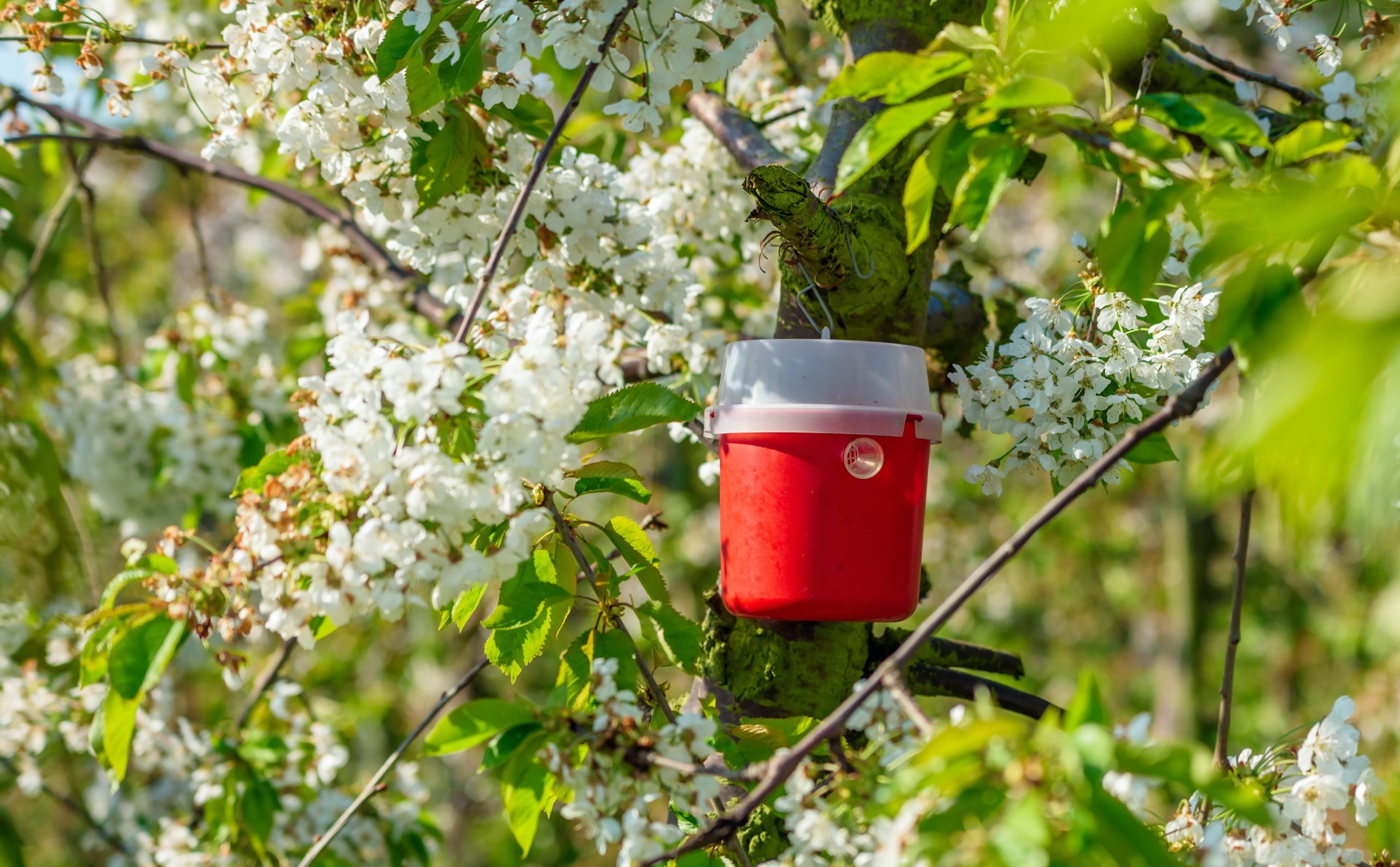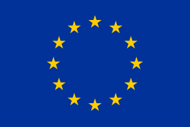
Plant protection
Plant protection tools and strategies working with biodiversity
Organic farming’s approach to plant protection is mainly based on the ecosystem services provided by well-maintained and functional biodiversity, as well as preventive measures to be as little dependent on external inputs as possible. As a last resort, organic farmers can use plant protection products but only if they are natural substances. Since the use of synthetic pesticides and herbicides is prohibited, organic agriculture prevents the introduction of new and alien substances into ecosystems.

Organic farming’s unique approach to plant protection reduces pesticide input by 97% compared to conventional systems [Mäder et al. (2002): Soil Fertility and Biodiversity in Organic Farming. Science 296, 1694]. In general, only 10% of the organic agricultural land requires the use of natural substances authorized by the EU Organic Regulation – and they aim to be specific enough to reduce infestations without compromising the system’s resilience. This is possible thanks to preventive and indirect measures organic farming uses to combat pests, such as crop rotation, crop diversification, manual tillage, etc. This makes organic farming one of the main levers to reduce EU agriculture’s high dependency on synthetic pesticides, which is problematic because pollution affects our soil, water and air, and leaves residues on our food. Synthetic pesticides also negatively affects farmers and farm workers health and working conditions. This combination of factors can be detrimental for human health, biodiversity, and the environment.
Synthetic pesticides also negatively affect organic farmers:
- The biodiversity loss pesticides cause hampers the ecosystem services organic’s approach to plant health relies on; and
- The more pesticides are used, the higher the risk of pesticide residues contamination of organic products.
Concerns over synthetic pesticides have been growing among citizens and policymakers. In its Farm to Fork and Biodiversity strategies, the European Commission sets ambitious targets to reduce:
- The overall use and risk of chemical pesticides by 50% by 2030, and
- The use of more hazardous pesticides by 50% by 2030.
Organic farming is part of the solution to reach these targets as it ensures the health of soil, plant, animal, human and planet, by creating resilient agricultural systems – significantly lower in use of and dependence on off-farm inputs. To achieve this, organic farming:
- Protects and enhances biodiversity within the production area, and
- Manages plant protection through preventive and indirect measures internal to the agroecosystem.
IFOAM Organics Europe…
- Supports the future development of organic plant health care in EU regulation and policy – Among others, the Commission’s proposal on the Sustainable Use of Plant Protection Products Regulation (SUR) to ensure the EU’s 50% pesticide use and risk reduction targets are met by 2030. Read more in our position paper;
- Started the project Developing Organic: Pesticide use and contamination to agree on a common approach of the organic sector on how to deal with findings of pesticide residues, before the Commission issues its report on national rules on residue findings, and a possible proposal on harmonisation.
- Is involved in IPMWorks, a Horizon 2020 project aiming at building a European farm network to demonstrate integrated pest management (IPM) strategies and promote the adoption of such strategies via knowledge exchange, and in which IFOAM Organic Europe’s role is to coordinate the network of involved organic demonstration farms.
- Was part of the RELACS project that developed and facilitated tools and technologies to phase out dependency on and use of inputs considered contentious in organic farming systems;
- Participates in the European Commission Directorate General on Health and Food Safety’s (DG SANTE) advisory group on food chain and animal and plant health;
- Is part of the European Food Safety Authority (EFSA) ‘stakeholders’ engagement’ process, including the annual EFSA’s Roundtable with NGOs;
- Collects messages, arguments, and visuals on organic’s approach to plant health for its members (contact [email protected] for information about membership).
Check out our video explaining the organic approach to plant health care as well as our recommendations for the Sustainable Use of Pesticides Regulation and for changing the Harmonized Risk indicator (HRI-1).
Three cuts are also available: organic approach to plant health care / SUR / HRI-1.
Ongoing processes
- Revision of the Sustainable Use of Pesticide Directive 2009/128/EC (SUD): the SUD creates a framework for sustainable pesticides use by promoting integrated pest management and alternative approaches or techniques to pesticides. On 22 June 2022, the European Commission proposed a new text revising this Directive into a Sustainable Use of Plants Protection Products Regulation (SUR). The proposal establishes new measures and objectives to achieve the Farm to Fork and Biodiversity Strategies’ EU targets of 50% reduction of pesticide use and risk of chemical pesticides by 2030, as well as the 50% reduction of more hazardous pesticides in the EU by 2030. The European Commission, the European Parliament and Member States are currently debating this reform. Read our recommendations.
Legislative background
- EU Regulation 2018/848 on organic production and labelling of organic products: This new EU Organic Regulation, replacing the EU Regulation 834/2007 and EU Regulation 889/2008, is being implemented as of 1 January 2022. It covers rules for organic plant production and plant protection products. The 57 natural substances authorized in organic farming are listed in the EU Organic Regulation 2021/1165;
- EU regulation 1107/2009 on the placing of plant protection products on the market: This regulation lays down rules for the authorisation of plant protection products in commercial form and for their placing on the market, use and control, and for the approval of active substances;
- EU Regulation (EU) 2022/2379 on Statistics on Agricultural Inputs and Outputs (SAIO): The SAIO sets rules on EU data collection on agricultural production, crop products, agricultural inputs, and prices. Data about pesticides use will be collected and published annually (until now, only data on pesticides sales were collected). The first set of data will be collected in 2026 and disseminated in 2028;
- EU Regulation 396/2005 stipulates maximum residue levels in or on food and feed of plant and animal origin.
IFOAM Organics Europe believes that many aspects of organic plant health care are not adequately addressed in the current EU policy and regulatory framework. Immediate and long-term actions in EU regulation and policy must include:
- Registration processes in horizontal legislation further adapted to naturally-occurring substances, reflecting their special importance for plant health care in organic farming;
- A fast-track procedure for inclusion of registered substances in line with the organic principles and necessary for organic plant health;
- Use of an indicator which properly measures pesticide use and risk in Europe (read more in our joint press release with Global2000, Pesticides Action Network and ECI Save Bees and Farmers);
- Prioritisation of organic farming in National Action Plans implemented under the Sustainable Pesticide Use Directive and upcoming Regulation;
- Prioritisation of research and knowledge transfer for organic plant health to support greater agroecosystem resilience;
- The introduction of a green valued add tax (VAT) on pesticides and synthetic fertilisers with revenues used to fund applied research development on organic and agroecological approaches.
Read our position papers on Plant Health Care in Organic Farming and the Sustainable Use of Pesticides Regulation (SUR) for more details.
RELACS – Alternatives for inputs in organic farming
The ‘Replacement of Contentious Inputs in Organic Farming Systems’ (RELACS) project looked into safe tools and technologies to phase out inputs considered contentious in organic farming. Two of the project’s work packages look into alternatives for copper and mineral oil. The RELACS project released relevant policy roadmaps and technical resources.
Developing Organic: Pesticide use and contamination
‘Developing Organic’ is the term we use for our work on specific issues important for the sector. Our first and ongoing Developing Organic project is called “Pesticide use and contamination: Ensuring a favourable environment for organic operators through EU legislative frameworks”. After a call to interested parties to join and support the initiative, the project officially started in November 2020. Its main objective is to agree on a common approach of the organic sector on how to deal with findings of pesticide residues to develop a fair and harmonised legislative framework for organic farmers, processors, traders, certifiers in the EU and beyond. The organic sector wants to be proactive on this key issue, as the European Commission will present a report assessing the national rules applicable in case of residue findings by 31 December 2024. This might be accompanied by a legislative proposal for further harmonisation in all Member States and Third Countries. The project is made possible by 17 sponsors and 1 supporter: find out who they are and why they decided to take part!
IPMWorks
The Horizon 2020 project IPMWORKS builds a European farm network to demonstrate integrated pest management (IPM) strategies and to promote the adoption of such strategies via knowledge exchange. IPMWORKS coordinates existing networks promoting IPM and launched new hubs of farms in regions or sectors where IPM pioneers were not yet engaged in a relevant network. IFOAM Organic Europe’s role is to coordinate the network of organic demonstration farms that are involved in the project.
InterCropValuES

InterCropValuES aims to exploit the benefits of intercropping. It will create a better understanding of the functioning of intercropping systems and make a detailed analysis of lock-ins and levers for intercropping at the value chain level. It will identify credible solutions that can be adopted by farmers and value chain actors.
Organic fruit growers often suffer economic losses due to insect damages. Functional agrobiodiversity (FAB) can reduce pest damage and pesticide use in organic apple orchards. One exemplary measure is the use of flower strips, an easy, attractive, fast technique to improve functional biodiversity in cropping systems by maintaining beneficial insects in the crop. The EcoOrchard project (2014-2018) has been launched to improve our understanding of flower strips behaviour in European orchards, and their effect on apple pests. Read more about this initiative on euorganic2030.bio.
Organic farm ‘Mrowisko’ specialises in organic vegetable production. The farm does not keep animals, but produces compost, vegetable broth and plant extracts. The effects are achieved mainly by properly constructed crop rotation, composting, organic fertilizers allowed by Fertilizer Institute in Puławy and manure purchased at organic farms. Proper composition of neighbouring plants protects the cultivation from pest and diseases. For more information, visit euorganic2030.bio


